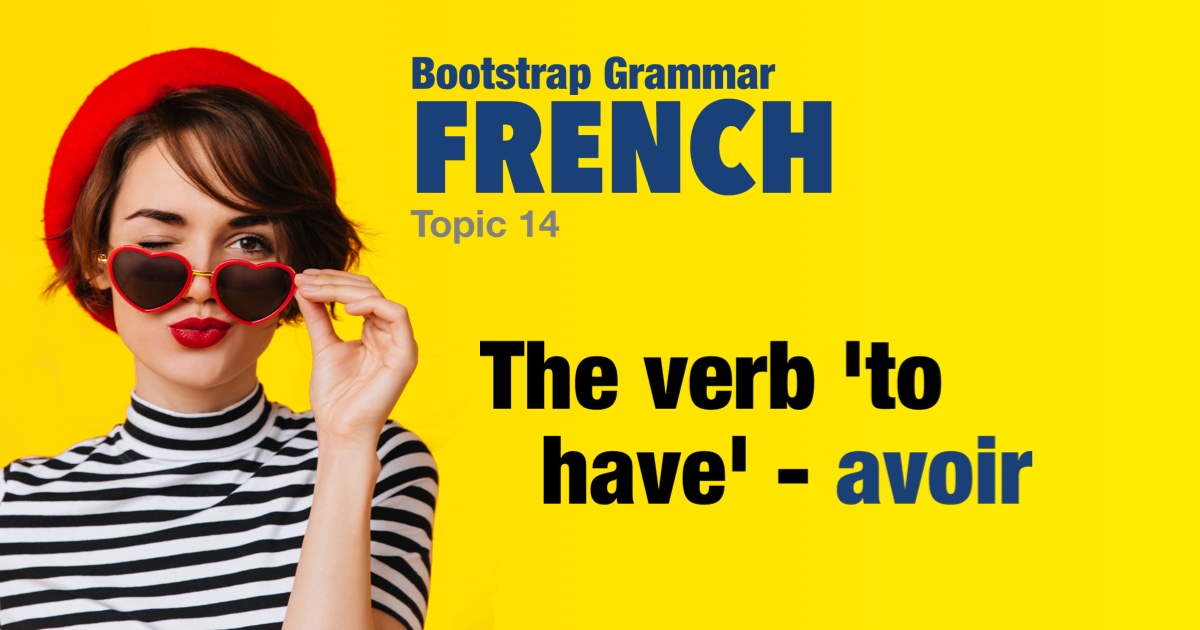French grammar - The verb 'to have' - avoir |
|||
|
|||
The French verb avoir means 'to have'. -- avoir is the infinitive or dictionary form. The verb avoir has the following present tense conjugations: • j'ai - 'I have' • tu as - 'you (singular familiar) have' • il a & elle a - 'he has' & 'she has' • nous avons - 'we have' • vous avez - 'you (plural & singular formal) have' • ils ont & elles ont - 'they (males and mixed) have' & 'they (females) have' |
| Examples: | |
|
J'ai une nouvelle voiture.
I have a new car.
|
|
|
Tu as le pain.
You (familiar) have the bread. |
|
|
Il a un petit problème.
He has a little problem. |
|
|
Elle n'a pas la clé.
She doesn't have the key.
|
|
|
Nous avons un gros chat.
We have a big cat. |
|
|
Vous avez le livre vert.
You (formal) have the green book.
|
|
|
Ils ont une grande maison blanche.
They have a big white house. |
|
|
Ont-elles un ordinateur puissant ?
Do they (females) have a powerful computer?
|
|
|
Tu as un grand vélo, n'est-ce pas ?
You (familiar) have a big bike, don't you?
|
|
|
Ai-je vraiment la clé ?
Do I really have the key? |
|
|
As-tu une petite amie ?
Do you (familiar) have a girlfriend?
|
|
|
A-t-elle un petit ami ?
Does she have a boyfriend?
|
|
|
N'a-t-il pas un nouveau voisin ?
Doesn't he have a new neighbor?
|
|
|
Avez-vous le billet ?
Do you (formal) have the ticket? |
|
|
Ont-ils un enfant ?
Do they have a child?
|
|
|
N'ont-elles pas un frère ?
Don't they (females) have a brother?
|
|
|
Ont-ils une table dans la pièce ?
Do they have a table in the room?
|
|
|
Vous avez raison.
You (formal) are right.
|
|
 |
|


 Note the contraction
Note the contraction 
